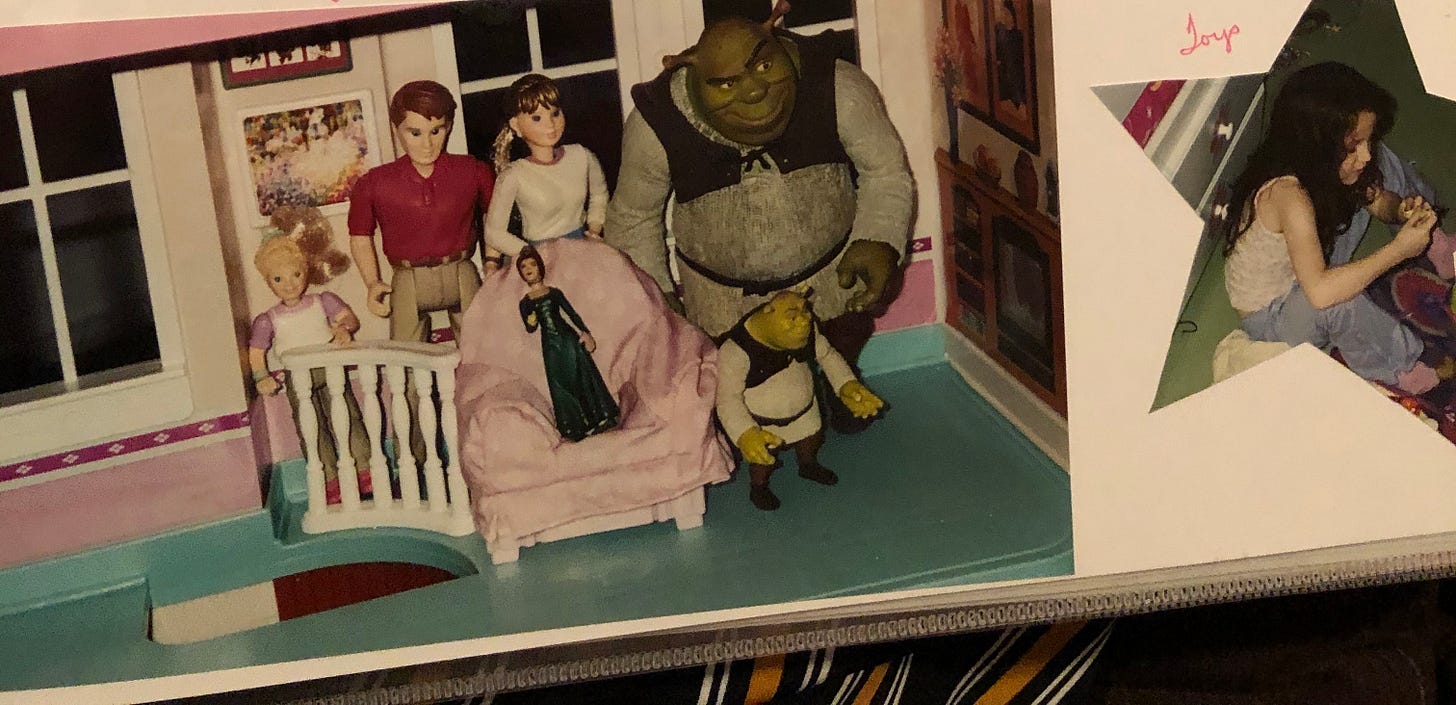We wouldn't have the Shrek sequels if we'd just abolished the family
What kind of person makes a movie about an ogre learning to love and thinks, “this creature is fertile”?

An urge I often struggle to fight is the urge to domesticate. While many people grew up using The Sims as an elaborate Final Destination simulator, I was entering each premade family’s home like Ty Pennington in the role of a feudal lord, giving everyone makeovers and planning their marriages. I also acted out this impulse on my toys; every doll had a s…
Keep reading with a 7-day free trial
Subscribe to Bratchet to keep reading this post and get 7 days of free access to the full post archives.



